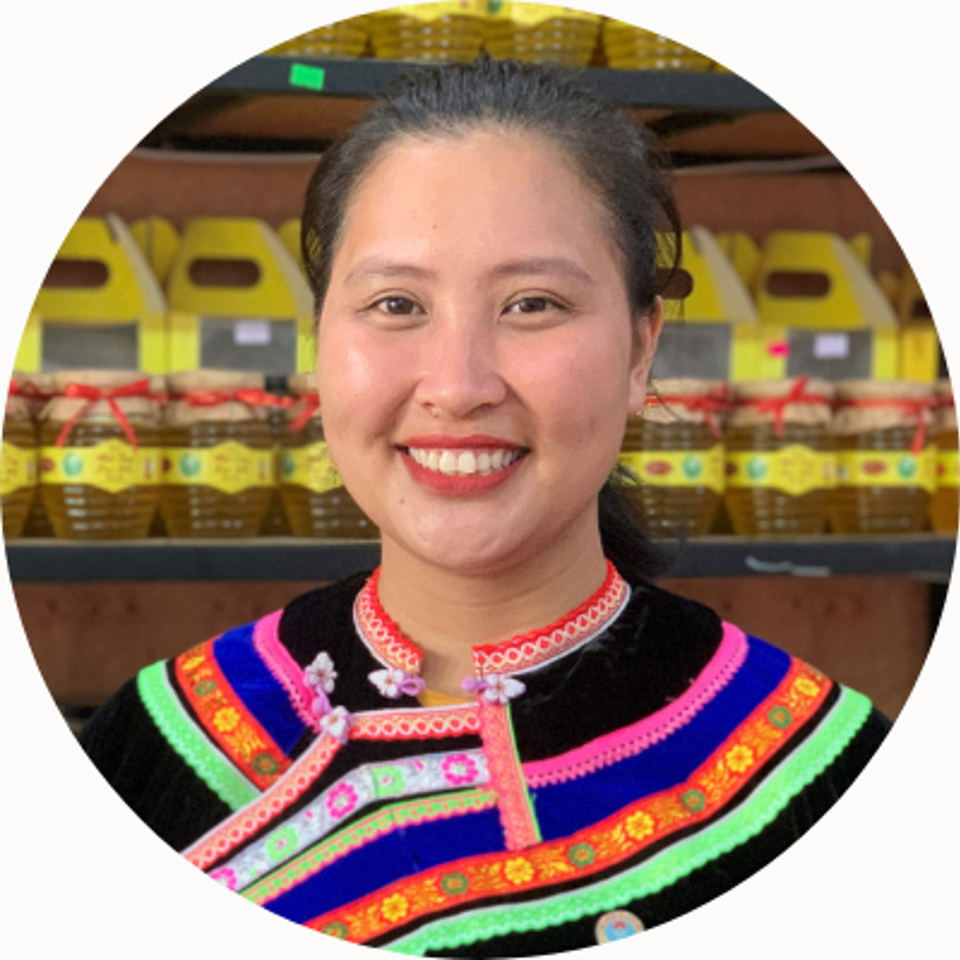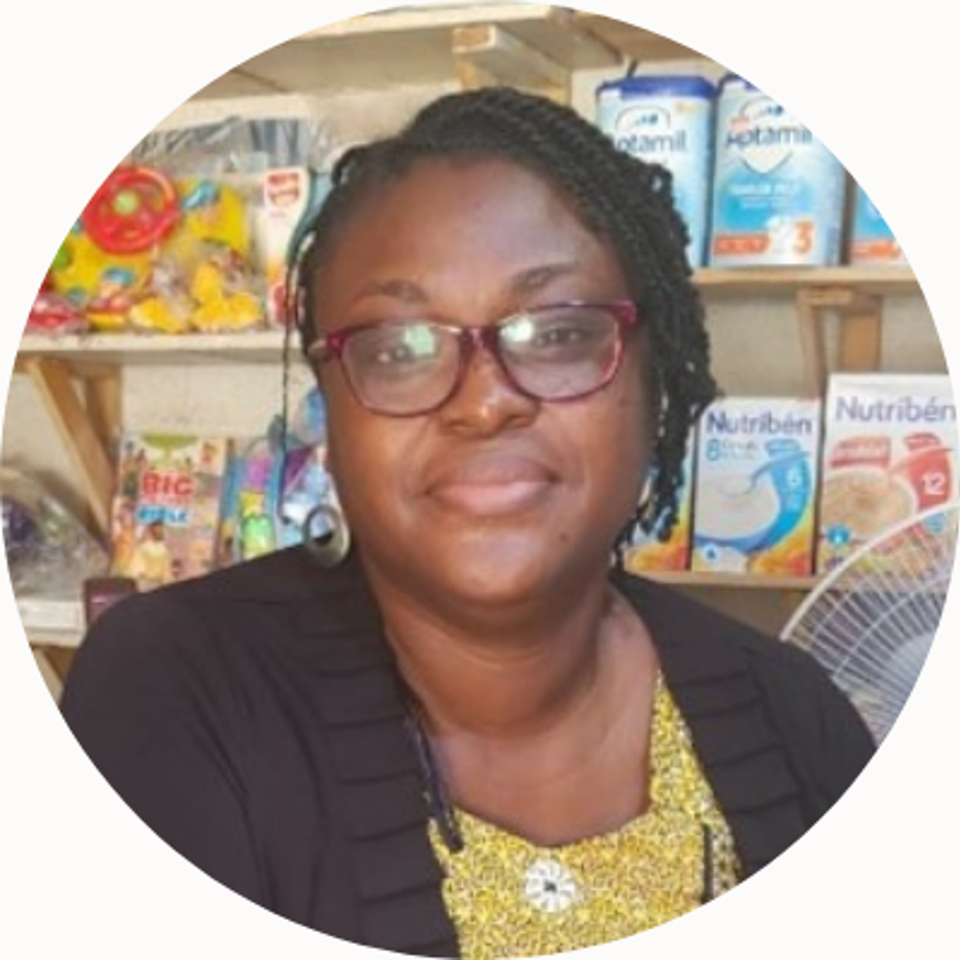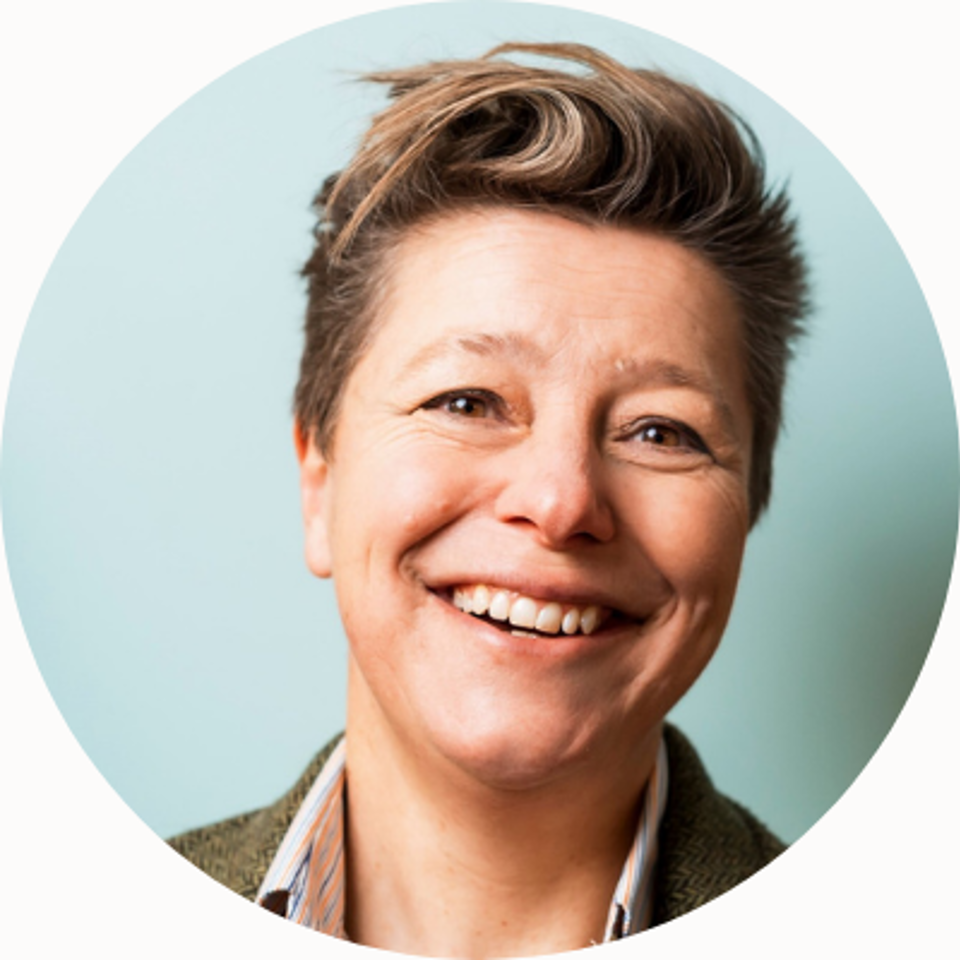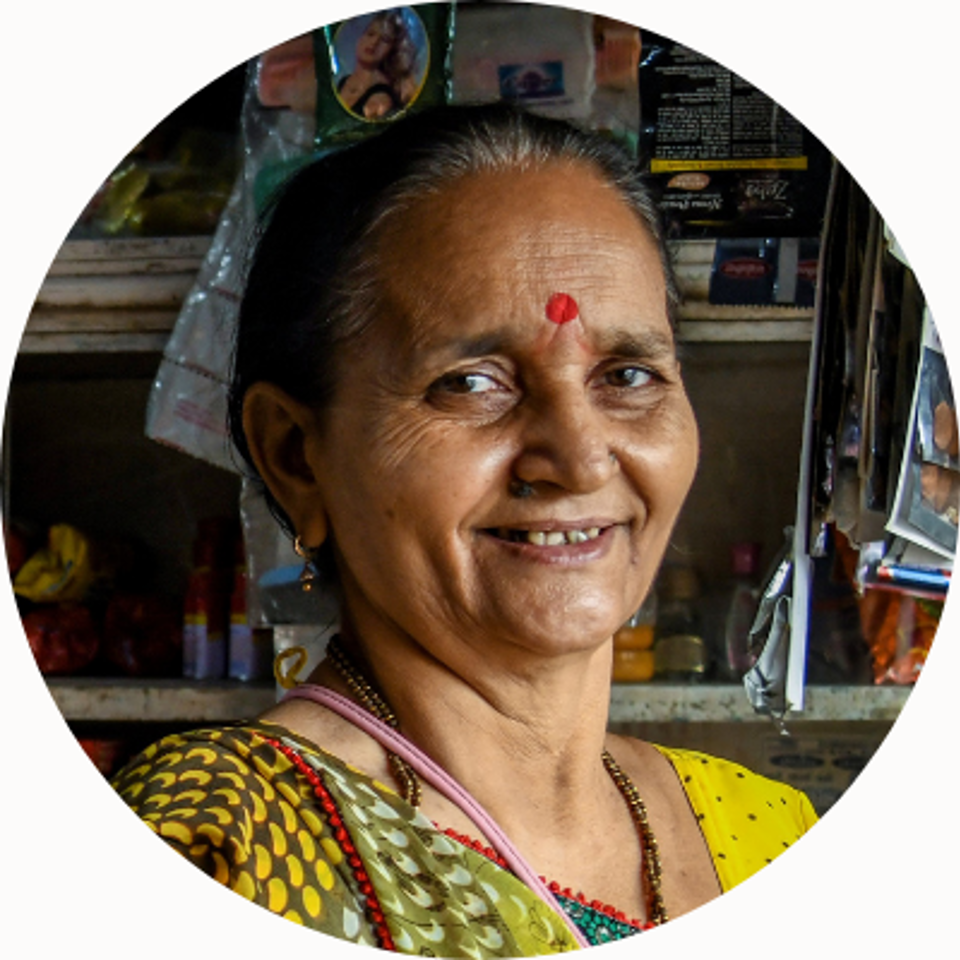Advice from 5 female entrepreneurs on money, tech and resilience
March 10, 2022 | By Vicki Hyman
Female entrepreneurs contribute more than a third of global GDP, but systemic and social barriers of all kinds keep them from reaching their full potential.
The fifth annual Mastercard Index of Women Entrepreneurs, which takes stock of the financial, social and cultural forces that impact women and business in 65 economies around the world, finds the pandemic has set back progress, but there are many places where the entrepreneurial spirit continues to thrive.
Here are the stories of five women who continue to set their own course despite challenges — hopeful indicators of change that will create more parity with men in the small business space and power a robust economic recovery for everyone.

Luu Thi Hoa, 29, Ha Giang, Vietnam
Luu Thi Hoa lives with her parents and young son in Ha Giang, Vietnam’s northernmost province, a place of steep forested hills and emerald valleys about six hours from the capital Hanoi, where her husband lives and works. She founded Po My, an agricultural cooperative that sells peas, leafy greens and a local honey that tastes of the mint blossoms that carpet the mountains in the winter.
“Right now, what I want most is to create more products from local resources to create sustainable livelihoods for my hometown people,” she says. “Especially people with difficult circumstances, so that they can take the initiative in making a living, and especially to enhance the image of the product to contribute to the changing face of the homeland.”
But as a young woman from an ethnic minority without much collateral, she found it hard to mobilize capital, both in terms of accessing credit and managing her own finances. To grow her business, she found support from CARE, the global humanitarian organization whose Ignite program helps build entrepreneurship and bridges the gap in finance, technology and networks for underserved micro and small business owners, especially women.
Women are outpacing men in entrepreneurial activity in Vietnam, according to the 2021 Mastercard Index of Women Entrepreneurs — one of only 10 economies where this is happening — yet there is a more than $1 billion gap in the capital demand of female-owned small businesses and what banks offer in Vietnam, according to an International Finance Corporation report.
Hoa took a number of courses through Ignite, which is supported by the Mastercard Center for Inclusive Growth, learning the fundamentals of business administration and product processing and receiving intensive coaching on product branding and packaging, especially for the mint honey. She now employs 18 people.
When COVID-19 hit, decimating the tourism industry that she relied upon for sales, she was able to use her new skills to sell her products on e-commerce platforms and to use social media to shorten the distance with potential customers, even livestreaming, which, she says, helps her customers understand her products better, and she can better understand her customers.
“In the future, I hope to create many products that generate value and help people in my hometown be active in production,” Hoa says. “I would love to be an example for other ethnic minorities to bravely start a business from your local resources.”

Angelica Acosta, 37, Sincelejo, Colombia
When Angelica Acosta was growing up, she saw her father struggle to build a series of small businesses in Colombia. Shut out from formal financing, he was forced to take out informal and often expensive loans to keep the businesses going. She thought about that often as she attended university and business school and worked for years in banking, business development and digital transformation.
“In Latin America,” she says, “there are many stories like my father’s, and I want to give a different opportunity to these people.”
In 2019, she co-founded IncluirTec, which has unlocked credit access quickly for more than 20,000 smallholder farmers and micro-entrepreneurs in three countries by generating an alternative risk assessment based on the applicants’ productive capacity and their socioeconomic context. A third of the loans have gone to women, who often lack access to capital. Globally, there is $287 billion credit gap for women-owned small and medium-sized businesses, with the largest gap in the Latin America, according to the IFC.
Acosta herself has found it challenging to raise venture capital for IncluirTec, with the mostly male investors she meets not interested in initiatives focused on women.
Last year, IncluirTec joined Start Path Empodera, a joint program launched by Mastercard and USAID to promote female entrepreneurship through access to leadership development, network-building support, mentorship and technical assistance. “We have big dreams and we can achieve them,” Acosta says, “and to have the support of other women and the financial resources is one of the keys to boosting female microentrepreneurs and inspiring girls and future generations to continue in the entrepreneurial way without being afraid.”
According to the 2021 Mastercard Index of Women Entrepreneurs, Colombia ranked second across all 65 economies surveyed for women’s advancement outcomes. That’s based on their progress and the degree of marginalization they face economically and professionally as business leaders, professionals, entrepreneurs and workers. Colombia ranked first for total business leadership positions held by women.
“The Colombian women have a secret,” Acosta says. “We never give up, and this is the reason why we have achieved important things and we can be a good example for other countries.” But, she adds, there is still a long way to go. “My best advice is, don't stop dreaming and to have self-love. The person that needs to have more confidence and faith in you — it’s yourself.”

Modupeola Lucy Asuku, 47, Lagos, Nigeria
Getting access to finance is a major stumbling block for many microentrepreneurs. Modupeola Lucy Asuku knew this better than most — she worked at a bank in Lagos but lost her job in the wake of the 2008 global financial crisis. With four young children at home, she decided she needed more flexible work, and started selling baby items shipped to her from her sister in the U.S. — toys, clothing, diapers.
Eventually she found a storefront not far from her house and her children’s school and opened DV’s Baby World, but struggled to keep the store stocked when her suppliers were unwilling to extend her even short-term credit. “What I need is the working capital so when I finish selling, I can restock immediately,” she says.
So in 2013, she turned to Accion Microfinance Bank, which helps microentrepreneurs, many of whom lack tangible collateral or a formal credit history, access financing for their businesses. Accion MfB not only bridged the gap for Asuku, securing more than 20 loans over the years ranging USD $120 to $480, but also helped her turn a subsistence operation into a thriving small business in other ways. The store, which now stocks everyday provisions such as soap and shampoo as well as baby goods, runs on solar power, purchased via an Accion MfB solar loan.
Since 2018, the Mastercard Center for Inclusive Growth has been partnering with Accion to enable Accion MfB and other inclusive financial service providers in nine developing economies to better serve microentrepreneurs like Asuku with tools and products to help them thrive in an increasingly digital economy. This work includes encouraging partnerships between financial service providers and other players within the digital financial ecosystem, including mobile network operators and e-commerce platforms, to support microentrepreneurs.
Under the program, Accion MfB has formed a partnership with Jumia, a leading e-commerce platform in Africa to help their loan clients, including Asuku, sell online. Accion MfB’s support team walked Asuku through Jumia’s onboarding process and taught her how to upload photos of her goods, for example, and participate in promotions.
Nigeria is a bright spot in terms of female entrepreneurship, according to the 2021 Mastercard Index of Women Entrepreneurs. The pandemic has had a disproportionate impact on women worldwide, but of the 65 economies surveyed, Nigeria is one of 21 in which entrepreneurship among women stayed the same or grew, and it’s one of 10 in which women’s entrepreneurship surpassed that of men.
Asuku’s advice for women thinking of opening their own business: Start. “From whatever they have, they should start with it. Sometimes when you are trying to wait until you have more money, you might end up not doing something. I believe in little beginnings … I knew what I had in mind when I opened the store. I knew one day I would get there.”

Kathy Caton, 47, Brighton, U.K.
Kathy Caton knows a thing or two about getting attention. She was working in broadcasting for BBC Radio 4 when she started a side hustle as a spirits maker, opening a craft gin distillery in the seaside resort town of Brighton. Ten years later, Brighton Gin is still going strong, having navigated the pandemic with gin deliveries via its signature turquoise bikes — occasionally with an obliging drag queen behind the handlebars.
“I’ve got a drama degree, not an MBA,” Caton says. “I’ll have a go at anything. I’m not afraid to stand up in a crowded room and approach people I don’t know.”
The challenge, she discovered, was finding that crowded room.
Female-founded startups receive a fraction of the funding of businesses owned by men, and accessing capital can be even more difficult in the alcoholic beverage industry, which is dominated by men. “I don’t necessarily know or hang out with a lot of angel investors and venture capitalists,” Caton says. “If you’re not plugged into those networks, how do you access them in the first place?“
The learning curve to opening Brighton Gin was steep — from developing the art of distilling to learning important intricacies of licensing to the minutiae of the tax code — but finding investment and managing cashflow was, she says, “really, really hard in the beginning, really hard in the middle and it’s really hard at the moment.”
Still, many female entrepreneurs in the U.K. are as undaunted as Caton. According to the 2021 Mastercard Index of Women Entrepreneurs, the proportion of women who started a business due to a desire to make a difference rose markedly, from 46% to 60%, even though, like most of the 65 economies surveyed, the rate of rate of entrepreneurial activity among women actually fell.
If you can’t always break into a network, build your own, says Caton, who has collaborated with other entrepreneurs and community members and has harnessed the power of digital to make connections across the globe. Her team is even handcrafting their first gin order for Taiwan at this very moment.
“It’s really about being generous with other people who will, in my experience, always be generous back to you in terms of help … We need to be very mindful that we don’t pull the ladder up behind us. It’s about supporting and lifting others up, not who can I trample on to make myself higher.”

Geeta Patel, 58, Ahmedabad, India
Nearly 30 years ago, Geeta Patel and her husband moved to the thriving city of Ahmedabad, the state of Gujarat’s largest city, for a better education for their four children. Geeta was determined to give her children better opportunities than she had received in her small village, where she only finished 7th grade.
“I dared to step out and change our lives,” she says, but admits the early years were difficult. “We did not have our own house, not have proper employment … but I didn’t give up. I was determined not to return back to my village.
Now Patel runs Umiya Provision Store and has a wholesale unit managed by her son. Umiya is known as “Aunty’s store” because she has built close relationships with her customers. “I treat everyone fairly,” she says. “So my customers trust me and that keeps them coming to me over and over again.”
These small neighborhood stores that cater to everyday needs are known in India as kiranas, and there are an estimated 12 million of them, representing an opportunity ripe for women in a country where only one in five work outside the home for pay. India experienced the second-largest drop in female entrepreneurship last year, according to the 2021 Mastercard Index of Women Entrepreneurs.
Mastercard has committed $33 million to help women and other underserved small business owners in India become more resilient and recover in the wake of the COVID-19 pandemic. In addition to this commercial investment, the Mastercard Center for Inclusive Growth partnered with an Indian NGO, Access Development Services, to equip and train kirana owners with access to know-how and digital tools to help them run their businesses more efficiently and grow.
Before taking part in the program, Patel says, her bookkeeping was haphazard, relying on a single notebook to keep track of stock, accounts and creditors. She since has been able to diversify her offerings, keep better track of her inventory, adopt new promotional strategies, and save money by putting in her wholesale orders online.
“I have only studied ‘til 7th grade but I have skills!,” she says. “Women need to take decisions by their own, they should be brave in risk taking. If they wish, they can run any business and lead their life independently.”

insights
When women work, economies grow
The 2021 Mastercard Index of Women Entrepreneurs underscores the resilience shown by women in challenging times and points the way toward changes governments, policymakers, businesses and people can make to foster progress.
Read more